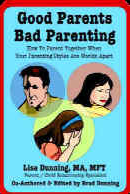"Behaviour is our best effort at any given time and situation with the skills we have to obtain what we want"
Primary and Secondary Behaviour.
What’s the difference? And Why is it Important?
When addressing inappropriate behaviour it is not uncommon be side tracked by the child’s associated behaviours which mat also be of cause for concern. However, it is essential if we are to positively influence our child’s behaviour to remain for the moment on the inappropriate behaviour that first caught our attention.
The corresponding behaviour or following behaviour once challenged is known as ‘secondary behaviour’, and is designed by the child to throw us off the track of what we were initially addressing and so, when we address the secondary and some times tertiary behaviour the initial primary behaviour of concern never gets addressed leading to continued occurrences of that specific behaviour.
Let’s take a look at a common household event. Your child comes home and just drops their ‘stuff’ on the floor; you ask them to pick it up and out it where it belongs. Almost instantaneously the child flies into a verbal assault and blames you for everything that’s wrong with their world. Sound familiar?
Now you are distracted to deal with the rudeness of their outburst or even worst attempt to console and comfort them, in order to determine what has upset the and how you can ‘make it better’. STOP! What has just happened here? What was the initial behaviour of concern? Has it been dealt with? If not, when? Let me tell you it not now in will not be dealt with until next time and what has the child leaned. The child has learnt that they can distract you and never really have to face the issue.
When focusing on the primary behaviour, it is important to remember to remain claim and as unemotional as possible. It is better to remove yourself and deal with the problem when you have control than to allow the child to influence your emotional state to a point that you begin to rant and rave at them. For one thing what are you modelling to them – lack of control?
Child Learn What They Live
IMPORTANT POINT: If your child is well rehearsed in the inappropriate behaviour it may well be to your benefit to begin with those behaviours that are small enough for you to experience some success rather than take one those well rehearsed behaviours that they are far to well practiced at. You need to experience success and gain some wins first.







No comments:
Post a Comment